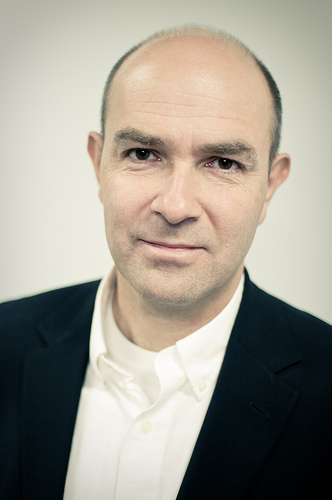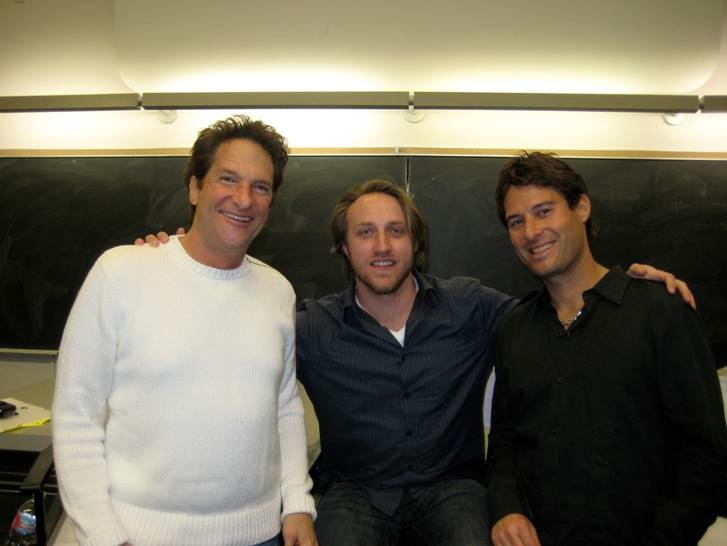Narrative is an imperfect tool, but incredibly powerful.
This was the contention of Chris Anderson, editor-in-chief of Wired magazine and author of the bestselling books, Free and The Long Tail, when he visited one of Peter Guber’s UCLA courses.
Conversation began to heat up when Chris said, “Our hunger, our appetite for stories — for beginning, middle, and end — is a bug in our brain.” He explained that stories assume certain patterns of logic that evolution — since the Stone Age! — has trained the human brain to anticipate. We expect something to happen or change over the course of a story to a character or characters we can empathize with. We assume the outcome will be the result of whatever happens in the course of the plot. We not only want the story to make sense, but we assume the events within the story will make more sense to us after the story’s conclusion. “It’s our wiring,” he acknowledged, “an evolutionary skill set that’s allowed us to teach each other and grow, to establish social networks and culture, but it’s a distortion of the truth.”

Chris Anderson & Peter Guber
Stories are accessible, Chris pointed out, because they’re concrete, active, visual — in other words, easily digestible — like fast food, maybe too much so.
MORE ABOUT TELL TO WIN
 To validate the power of telling purposeful stories, Guber includes in this book a remarkably diverse number of ‘voices’ – master tellers with whom he’s shared experiences. They include YouTube founder Chad Hurley, NBA champion Pat Riley, clothing designer Norma Kamali, “Mission to Mars” scientist Gentry Lee, Under Armour CEO Kevin Plank, former South African president Nelson Mandela, magician David Copperfield, film director Steven Spielberg, novelist Nora Roberts, rock legend Gene Simmons, and physician and author Deepak Chopra.
To validate the power of telling purposeful stories, Guber includes in this book a remarkably diverse number of ‘voices’ – master tellers with whom he’s shared experiences. They include YouTube founder Chad Hurley, NBA champion Pat Riley, clothing designer Norma Kamali, “Mission to Mars” scientist Gentry Lee, Under Armour CEO Kevin Plank, former South African president Nelson Mandela, magician David Copperfield, film director Steven Spielberg, novelist Nora Roberts, rock legend Gene Simmons, and physician and author Deepak Chopra.
After listening to this extraordinary mix of voices, you’ll know how to craft, deliver – and own – a story that is truly compelling, one capable of turning others into viral advocates for your goal.


